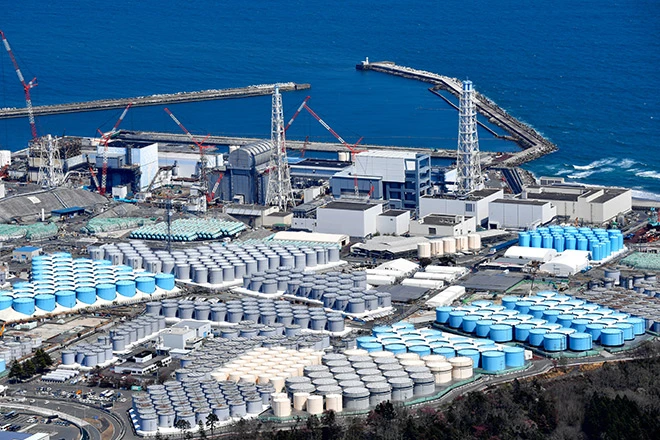Japan has announced that it will begin releasing wastewater from the wrecked Fukushima Daiichi nuclear power plant from Thursday, in defiance of opposition from fishing communities, China and some scientists.
The prime minister, Fumio Kishida, was quoted as saying that he had asked the plant’s operator, Tokyo Electric Power (Tepco), “to swiftly prepare for the water discharge” in accordance with plans approved by nuclear regulators, adding that the release would begin on Thursday, “weather and ocean conditions permitting”.
Kishida has said that disposing of more than 1m tonnes of water being stored at the site was an essential part of the long and complex process to decommission the plant.
According to reports, the plan has caused controversy because the water contains tritium, a radioactive substance that can’t be removed by the facility’s water filtration technology.
Hong Kong, which is an important market for Japanese seafood exports, has threatened restrictions. Leader John Lee said on Tuesday he strongly opposed the water plan, adding that he had instructed the city’s government to “immediately activate” import controls on Japanese seafood.
Read also: Actors back campaign to cut climate impact of ‘celebrity riders’
South Korea and China are said to have banned seafood imports from some areas of Japan after Fukushima Daiichi suffered a triple meltdown in the March 2011 triple disaster along the country’s north-east coast. China remains strongly opposed, accusing Japan of treating the ocean like a “sewer”.
Recall that the South Korean government recently dropped its objections to the discharge, but opposition parties and many South Koreans are concerned about the impact the discharge will have on food safety. The decision comes weeks after the UN’s nuclear watchdog, the International Atomic Energy Agency (IAEA), approved the discharge, saying that the radiological impact on people and the environment would be “negligible”.
Some experts have also pointed out that nuclear plants around the world use a similar process to dispose of wastewater containing low-level concentrations of tritium and other radionuclides.
“Tritium has been released [by nuclear power plants] for decades with no evidential detrimental environmental or health effects,” said Tony Hooker, a nuclear expert from the University of Adelaide.
Story was adapted from the Guardian.
